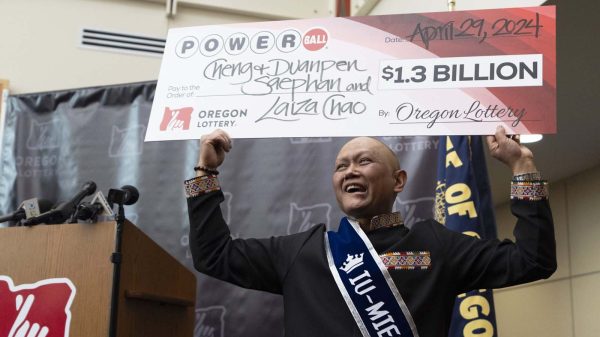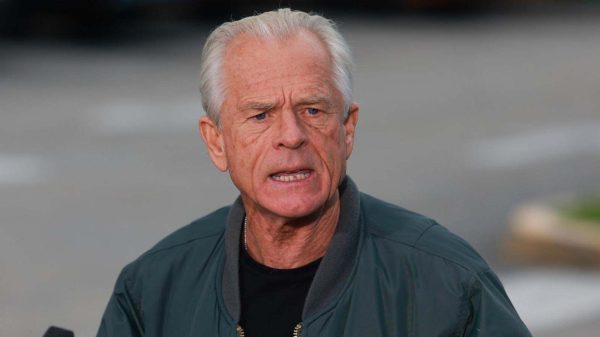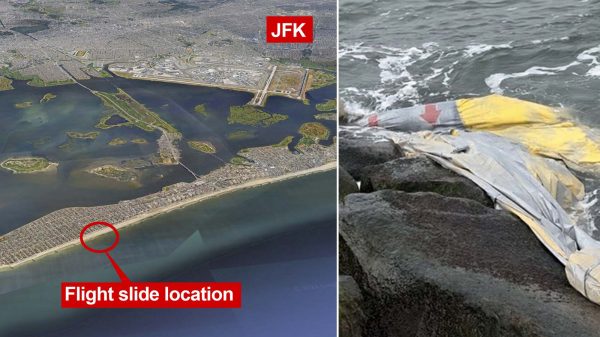Over the past two decades, China has ramped up its economic ties with nations across Latin America, but it is China’s rising influence in the region that has Washington increasingly concerned.
The growing threat China poses to the U.S. has moved ever forward in the American conscious as defense officials and lawmakers continue to monitor emerging trends from Beijing’s burgeoning relationships worldwide.
China’s quiet expansion in the southern hemisphere has increasingly caught the attention of U.S. defense officials and lawmakers, including Florida Republican Rep. María Elvira Salazar, who last month drew attention to growing security threats emerging from Latin America.
In a House Foreign Affairs Committee hearing, Salazar told lawmakers that Argentina, along with nations like Venezuela and Bolivia, were allowing China to gain a military foothold in Latin America.
“[Chinese President] Xi Jinping has been to Latin America more times than President Obama, Trump and Biden combined in the last 10 years,” Salazar told lawmakers. “The Chinese are not here for trade. They’re here for war.”
The Florida congresswoman pointed to China’s sales of military equipment and arms to the region over the last decade and claimed that Argentina is now considering opening a Chinese fighter jet factory.
Argentina’s Ambassador to the U.S. Jorge Arguello rejected Salazar’s claims earlier this month as false and called them “absurd.”
However, Salazar also drew attention to a Deep Space Station the size of “400 football fields” in the middle of Argentina’s Patagonia desert as another chief security concern.
“I am sure the Chinese are very interested in studying the stars and every constellation. But the problem is that Argentina has no idea what’s going on there because the Chinese don’t let them in,” she said before questioning whether this program has anything to do with the recent Chinese “balloon” activity over the U.S.
The ambassador scoffed at Salazar’s concerns regarding the space station, saying he has personally visited it and claimed it was akin to another agreement Argentina has with the European Space Agency.
However, one expert on Latin America told Fox News Digital that the U.S. has serious concerns when it comes to this space station.
“We have no clue what takes place there and neither do the Argentinians. We believe that [China’s] using that as a mechanism to monitor our space activity and otherwise be a collector of intelligence,” Juan Cruz, former National Security Council senior director for Western Hemisphere affairs said.
Beijing’s involvement in Latin America stretches far beyond its military interests there.
China has a “physical presence” in 25 out of 31 Latin American countries and nearly 30% of its global lending goes to Latin America, according to Salazar’s office.
Trade between China and Latin America also grew 26-fold from 2000-2020 – an increase from $12 billion to $315 billion according to the World Economic Forum.
This growth is only expected to keep rising, reaching more than $700 billion a year by 2035.
While the U.S. remains Latin America’s largest trading partner, China is quickly rising to overtake Washington in nearly every field in the region, including in trade, security, tech, and diplomatic relations – a feat it is carrying out largely through soft power.
“We woke up one day and the Chinese were in our neighborhood,” Cruz said. “That displacement takes place not just in business and government [and] diplomatic influence but in terms of technology and what they’re doing around the world with a lot more relevance to U.S. interests.”
Cruz explained that the U.S. has a “crisis oriented” view when it comes to Latin American foreign policy, which generally means Washington pays attention to regions after they are already in trouble or causing an issue for the U.S.
“Chinese investment and Chinese involvement is the opposite,” he said. “They’re investing, and they’re having a role where no one’s looking.”
China first started investing in small local projects throughout Latin America in the late 90s. By the early 2000s with the start of the war on terrorism, China ramped up its investments in places like the Caribbean where former colonial powers were no longer expending as many of their resources.
Cruz explained that this left a “vacuum” that China stepped in and filled, solidifying itself as a top international player in Latin America.
“That’s how quickly they got into the game and bought their influence,” he said. “They come in with these little projects or insignificant things that you or I diminish the importance of, yet they’re thinking of this in a totally different way.”
American businesses have largely left Latin America for a variety of reasons relating to corruption, legal parameters and other foreign financial incentives.
However, under China’s Belt and Road Initiative, Chinese companies have not only not been deterred by the same hurdles, but they have chosen to invest in projects that do not show obvious or even immediate gains.
“No one makes money off a public utility – that’s why they’re selling them. But the Chinese are buying,” Cruz detailed. “And what’s that get them? It gets noticed. It gets influence.”
However, investing in public infrastructure and technology development not only buys China favor in the region, it opens them up to a certain amount of control.
“The Chinese are brilliant,” Cruz said. “They buy agreements that don’t make money, but it gets…influence that you can’t tabulate.”
U.S. and international defense officials have long warned of the intelligence that China could be collecting through its Huawei infrastructure and the threat this poses to international security.
However, Cruz pointed to another advantage that China gains in acquiring public utility services like water, electric and internet facilities – bargaining chips.
“Do you want another country operating and controlling that kind of infrastructure in your country?” Cruz questioned. “If they wanted they could place a tool in their software that controls your electricity remotely.
“It makes these countries more beholden to the Chinese,” he explained.
The influence China appears to be buying in Latin America has security officials concerned by the number of fronts Beijing is inserting itself into, including the acquisition of natural resources, 5G development, space security and major geopolitical hot topics like the security of Taiwan.
“The Chinese playbook is not just one. They have tool after tool after tool that they’re employing,” Cruz said, explaining that it is becoming near impossible to counter China in every sector they are involved in.
“They’ve opened 10 fronts against us. Do we fight on all 10 fronts?” he continued. “Can it be done? I don’t know.”
















China can be stopped if we go after the corrupted in our government! The betrayal is from within far more than it is without!
The most dangerous enemy is a domestic enemy=Joe Biden/Obama/Hillary++++ and they have corrupted all. It was the Clinton’s that empowered communist China by declaring them a “developing country”! That developing country is now seeking the destruction of America and the besiegement of all countries within and outside their region, like Africa!
And after the Clinton’s were done selling America, many Politicians followed as well bc China bought each and every one of them.
Every politician that screams, Russia, Russia, Russia, is most likely on the Chinese pay role.